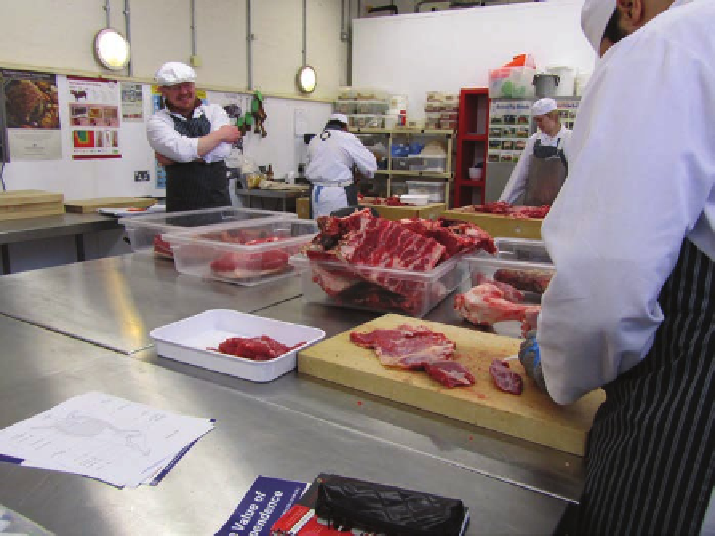Agriculture Reference
In-Depth Information
culinary schools actually go into the field or to the local farmers' market
to gather the produce and then take it back with the students for prep-
aration. The more that this experience can be made a 'Plough to Plate'
experience, the more the delegates will enjoy the experience. Some
schools are now developing a programme that starts with harvesting
the produce, then shows how to prepare and cook the meal and finishes
with showing how to compost the leftover food; a complete cycle.
•
Prepare recipes and place them on a blackboard in the cooking area as
well as on a leaflet for the students.
•
Cooking is a form of entertainment and should be approached that way.
The demonstrator needs to be proficient, efficient and entertaining.
One of the most advanced culinary schools we are aware of is 'The Welbeck
Project' (
www.welbeck.co.uk/work-live/work/welbeck-project), w
hich was
started in 2007 in heritage buildings at Welbeck House in Sherwood Forest,
Nottinghamshire in the UK. The school and facility are divided up into dif-
ferent areas:
Fig. 3.7.
The Welbeck Estate in Nottinghamshire, UK has developed The School of
Artisan Food.
•
The Welbeck Abbey Brewery specializes in teaching how to produce old
local ales and they now export to over
70
countries.
•
The Wellbeck Bakehouse provides classes on handcrafted organic breads.
•
The School of Artisan Food opened in 2009 to provide classes on baking,
butchery and cheese making. Attendees can take a short weekend course
or a year-long diploma (
www.welbeckbakehouse.co.uk
)
.

